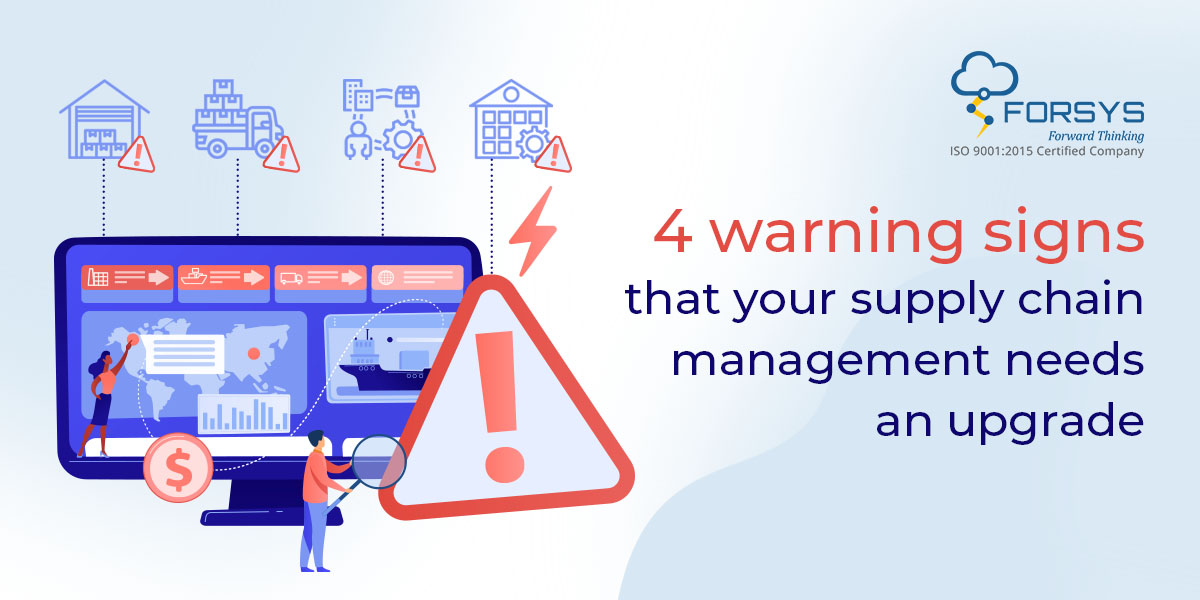As globalization has made the supply chain processes more complex in nature, businesses are now leveraging analytical standards to make their decision-making capacities more effective and strengthen the efficiency of their supply chains. To be able to survive competition, achieve qualitative progress and respond to disruptions, businesses should invest in responsible supply chain management.
No matter what you manufacture or sell, the supply chain is the lifeblood of an organization. An effective supply chain is what allows a person in America to get coffee beans from Guatemala. Each aspect of the supply chain requires on-time assessment and thorough monitoring to maximize performance and productivity.
An efficient supply chain management holds the power to either make or break an organization and is essential to company success and customer satisfaction. And if your supply chain management doesn’t upgrade with time, your business may eventually start to fall apart.
Still, wondering whether to upgrade your supply chain or not? Here are four signs that you should.
- Poor inventory visibility
When the product demand grows, it isn’t easy to keep a close track of the inventory spread across the different distribution channels and retail outlets. If your business USP is ultra-fast delivery (for example, same-day or next-day delivery), it requires a highly efficient order-fulfilment system and correct inventory visibility. The use of accurate metrics is needed to keep track of cost-effectiveness and efficiency as the product passes through the distribution network.
- Lagging inventory transit visibility
After a shipment/package leaves a distribution center, you face issues tracking its progress until it reaches the customer or ends up at the collection center. From making data and communication exchange top class to leveraging machine learning to achieve standout predictive capabilities, having good omnichannel logistics is an absolute necessity to ensure efficient supply chain visibility and forecast accurate delivery schedules.
- Disjointed supply chain processes
If you think of a real chain where all the individual links are connected, all the links in the supply chain should be connected to make sure that the whole process works fine. If the distribution centers and warehouses aren’t connected and function on different systems, the supply chain is doomed for failure and expected to witness communication collapses.
- Inventory management processes manually managed
Errors are common to manual paper-based processes as compared to automated processes. In such a scenario, the need for a system like Oracle Fusion Cloud Supply Chain Management (SCM) that can adapt to quickly changing business models and improves overall organizational resilience is what can make all the difference.
What is Oracle Fusion Cloud SCM?
It is a cloud-based application that unifies end-to-end business processes, irrespective of the ever-expanding supply chain requirements of a new-age enterprise. Customers globally rated Oracle Fusion Cloud SCM as the most comprehensive offering due to its ability to incorporate a digital supply chain with capabilities like strategic material sourcing, integrated logistics, omnichannel fulfilment, product innovation, and integrated demand and supply planning. It supports deployment of functionality incrementally without impacting the ongoing functional innovation at low cost with maximum flexibility making a sustainable supply chain.
Want to gauge the efficiency of your SCM?
Forsys provides visibility, capabilities and insights businesses would need to build an intelligent supply chain. Our in-house experts ensure that the client’s SCM functionality improves and attains the desired efficiency level within the existing functional innovation parameter without raising the project cost. Our multiple years of expertise in implementing, configuring, optimizing SCM leveraging Oracle E-Business Suite (EBS), Fusion and Cloud for organizations of different sizes and from varied industries have helped clients to put their best feet forward in product innovation and product life cycle management initiatives. As an Oracle Co-Development partner for their SCM cloud, Forsys ensures that an organization’s supply chain is resilient to support the current growth and able to respond to future disruptive events.
The parting words
If you haven’t updated your supply chain system in a while, you’re surely missing out on an opportunity that can streamline your business. The larger your business gets; more efforts need to be put into your supply chain management to ensure all the stakeholders are happy. If you don’t want the tables turned on you, think about upgrading your supply chain today. After all, a supply chain is a key ingredient of any business, and it deserves to be treated as such.
Want to know how we helped a global 500 company radically transform their supply chain to handle risk-based scenarios or are keen to explore our SCM solutions in depth? Connect now.

